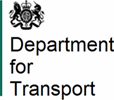
20 Apr 2022
Planes running on batteries and hydrogen to become a reality under new group of aviation experts
- New Zero Emission Flight Delivery Group launched to focus on catapulting latest innovations in aviation decarbonisation technology
- New Chair, Rachel Gardner-Poole to lead the forum
- Builds on UK’s ambition to be world-leaders on aerospace R&D with an additional £685m to be provided for Aerospace Technology Institute programme over the next three years.
Transport Secretary Grant Shapps and Business Secretary Kwasi Kwarteng have today (20 April 2022) set out a new group of aviation experts across industry and government who will work together to make zero emission flight a reality.
As world leaders in aviation decarbonisation, the new Zero Emission Flight (ZEF) Delivery Group, will further Britain’s role in the global effort to end flight emissions.
Launched at the fifth meeting of the Jet Zero Council, the new steering group will help position the UK at the forefront of the global shift to green aviation by supporting the development of zero emission aircraft and airport infrastructure. It will also look at how the law needs to adapt so that sustainable flying can truly become a reality.
The new group will sit under the Jet Zero Council – an advisory forum with experts from across the industry – and will focus specifically on the technology, infrastructure and regulation needed to make zero emission flight a reality.
Speaking at the fifth Jet Zero Council meeting today, the Transport Secretary, Grant Shapps said:
“From the first jet engine created here in the UK, Britain is truly a world-leader in flying. Now we are determined to revolutionise flying and we want to see everyone have the opportunity to travel guilt-free.
“We are determined to bring forward the flight technology of the future, and through our new Zero Emission Flight Delivery Group, we will help create thousands of jobs around the country and take another step toward zero emission flights.”
The new group will be led by aviation expert Rachel Gardner-Poole, who joins with over 20 years of experience in military and commercial aviation, both in the public and private sector. Currently the Chief Operating Officer for the Connected Places Catapult, Rachel has previously worked at the Civil Aviation Authority, the UK Space Agency and IBM.
Under Rachel’s leadership, the ZEF Delivery Group will build on the progress made through the Aerospace Technology Institute’s (ATI) FlyZero project and the Department for Transport’s Zero Emission Flight Infrastructure project.
Zero Emission Flight Delivery Group Chair, Rachel Gardner-Poole:
“It is a great privilege to be asked to be the Chair of the ZEF Delivery Group and I am committed to the critical work ahead to make zero emission aviation a reality.
"I am passionate about using innovation and technology to create a positive impact on our planet and look forward to collectively addressing the challenges and opportunities that lie ahead of us.”
The Government is investing in Aerospace R&D through the Aerospace Technology Institute (ATI) Programme and £685m will be provided over the next three years, which was announced in March by the Business Secretary.
In addition, Government is providing £125m (matched by £175m from industry) of support for Innovate UK’s Future Flight Challenge. The Challenge will shortly announce projects successful in its third funding competition including those advancing electric flight technologies that will support the operation of sub-regional aircraft and the UK in reaching its net zero target.
Contact Information
Joseph Brookes
joseph.brookes@dft.gov.uk
Notes to editors
- The ZEF Delivery Group will complement the existing Jet Zero Council structure and will sit alongside the Sustainable Aviation Fuels Delivery Group.
- The purpose of the ZEF Delivery Group is to put the UK in a leading position in the race to achieve zero emission flight, supporting the JZC to deliver on its objectives to:
- Accelerate the design, manufacture, testing, certification, infrastructure, and commercial operation of zero emission aircraft and aviation systems in the UK through sustained investment in applied research and development (R&D) and fostering greater collaboration across sectors.
- Support grassroots innovation in these areas and make the UK the best place in the world to develop new aviation technology.
- Challenge existing approaches by involving disruptors and innovators in the dialogue.
- As a group, the Jet Zero Council members have made significant achievements on ZEF, including, Rolls-Royce’s Spirit of Innovation which is the world’s fastest all-electric aircraft
- ZeroAvia secured further private investment and moved closer to achieving commercialisation for its hydrogen propulsion technology by 2024
- easyJet has entered into a partnership with Cranfield Aerospace Solutions to support the development of its hydrogen fuel cell propulsion system
- Airbus launched its ZERO demonstrator to support its aims to develop the world’s first zero-emission commercial aircraft by 2035.
- And the FlyZero project also concluded in March this year, setting out the potential for liquid hydrogen to be used for future zero emission commercial aircraft.
